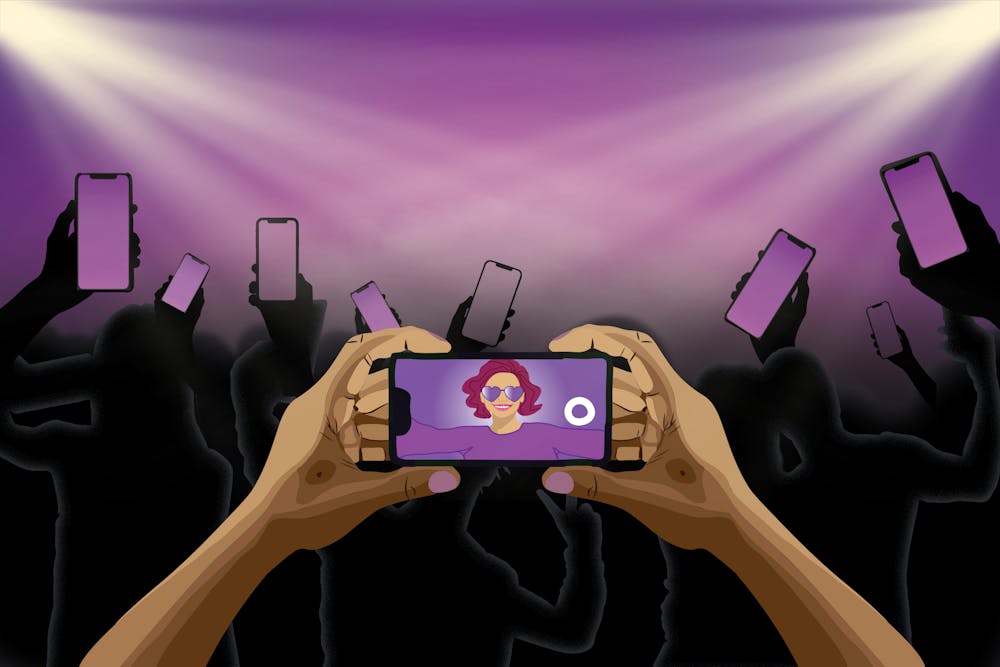I say this as an avid concert lover: concert culture is falling to new lows. Society is constantly pushing social media, money and fame into the limelight at live shows in place of connection, vulnerability and most importantly, music.
More and more, it feels like people go to a concert to get a tour exclusive T-shirt, hear the 15 seconds of a song they know from TikTok or breathe the same air as the famous artist instead of going for the experience of hearing live music.
The increased commercialization of musicians is drastically harming the ambience of live shows and the reasons for attending, and it’s changing the backdrop of concerts.
Prices surrounding concerts surge as commercialization does. For the top 100 tours, an average ticket in 2024 costs more than $120, a 34 percent increase from 2019. Ticketmaster effectively has a monopoly over ticket sales, selling 80 percent of all concert tickets, and sales from this site often end up being around $50 more expensive due to unnecessary fees. At a concert, the high costs continue in terms of merch sales. A T-shirt can cost as much as $50, while a hoodie is, on average, $80.
So why do fans continue to pay hundreds of dollars for a concert experience? Because they are endlessly and hopelessly devoted to the musicians.
The commercialization of performers doesn’t only change the economics of a concert experience; it changes the way fans view the artists as well. Musicians become the attraction of a concert over their songs — they become people's idols.
It’s normal for tour dates to be announced and tickets to be sold before an album is even released. Often, people don’t care about the music; they haven’t even heard it. They are going to a concert to see the artist perform as a person, not as a musician.
Fans often camp out, getting in line days before the show, in an attempt to be closer to the stage. This demonstrates the insincere motivations of the crowd. The music will sound the same from anywhere in the venue, but fans care about seeing the artist, not hearing the songs.
This obsession creates crowds that are not only disingenuous, but dangerous.




